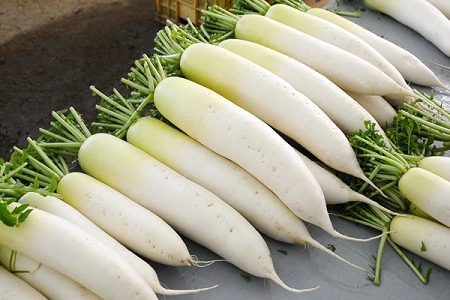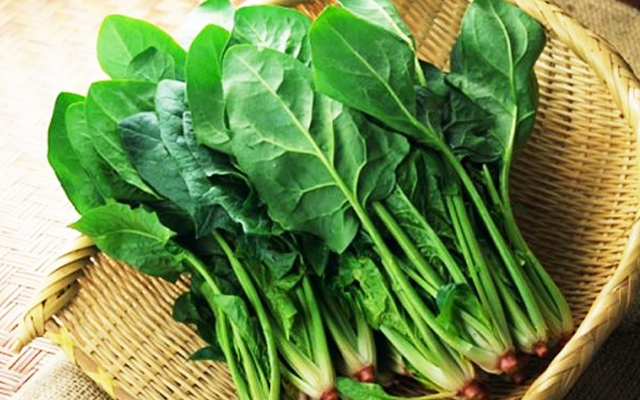The group of vitamins K is essential for protein synthesis, helping to reduce bleeding when injured and for the blood clotting process to take place properly.
The group of vitamins K is essential for the synthesis of proteins that help reduce bleeding when injured and for the blood clotting process to take place properly. Vitamin K is needed by the body to control calcium in bones and other tissues. Without vitamin K, these proteins cannot bind to calcium ions. When people are deficient in vitamin K, the blood clotting process is hindered and uncontrolled bleeding can occur. In addition, vitamin K also helps strengthen bones and prevent calcification of arteries and other soft tissues.
Following the scientific discoveries of vitamins A, B, C, D and E, vitamin K was first discovered by Henrik Dam – a Danish scientist in an experiment when he fed chickens a diet low in cholesterol. After a few weeks, the animals showed signs of hemorrhage and began to bleed. Dam continued to study this sign by feeding chickens food that was completely cholesterol-free. Then, by chance, he discovered a compound while removing cholesterol from the chicken’s diet. He named this compound “Koagulation” (which means blood clotting in Danish). Dam’s discovery was first published in a German-based scientific journal called Koagulationsvitamin compounds. And the name vitamin K came to be known as the first letter of the word “Koagulation”.

White radish is rich in vitamin K.
Vitamin K is found in the highest amounts in green leafy vegetables, so we should choose these foods and include them in our diet regularly to get the most health benefits from this essential vitamin.
Kale: Not only is it a vegetable high in vitamin K, but it is also a storehouse of other compounds that can bring great benefits to our bodies. Kale plays an important role in regulating blood sugar levels, so it is very beneficial for diabetics’ diets. It has also been shown to be effective in lowering blood pressure, reducing the risk of cancer and heart disease. Kale can help maintain healthy skin, hair, bones and aid digestion.
Collard greens: The daily requirement of vitamin K is about 120 micrograms for men and 90 micrograms for women. A cup of boiled collard greens will give you 770 micrograms, so you don’t need to eat them too often to keep your vitamin K levels up. Collard greens have also been shown to be effective in reducing the risk of many types of cancer, including lung, prostate, melanoma, pancreatic, and esophageal cancer. Collard greens also help regulate sleep and stabilize mood, making them useful for people with depression. They are also good for hair, skin, and bones, aid digestion, and are beneficial for people with type 1 and type 2 diabetes.

Spinach
Spinach: This is also a rich source of vitamin K and is also an excellent source of vitamins and minerals such as vitamin A, C, B2, B6, E, magnesium, manganese, copper, potassium, iron, phosphorus and calcium. With such a list of nutrients and compounds, eating spinach regularly will bring a series of health benefits such as supporting low blood pressure, keeping the heart healthy, and supporting mental function including improving concentration and memory recovery.
White radish: Vitamin K in white radish is a huge number. Every 100 grams provides 588% of the recommended daily intake of vitamin K. Along with vitamin K, 100 grams of radish will also provide you with 61% of your daily vitamin A. Regular consumption of turnip greens significantly reduces the risk of certain cancers such as bladder cancer, breast cancer, colon cancer, lung cancer, prostate cancer and ovarian cancer.
Kale: Contains high levels of nutrients and vitamins. 100 grams of kale will give you 300 micrograms of vitamin K and is effective in lowering your LDL cholesterol. Kale provides you with twice your daily requirement of vitamin K and over 100% of your daily vitamin C. It also contains a range of B vitamins which are essential for keeping energy levels optimized and is also a good source of omega-3 fats which help maintain a healthy heart and give you a better mood if you are feeling down.
Broccoli: Steamed broccoli also provides you with at least double the vitamin K requirement and lowers your blood LDL like kale. So if you are looking to keep your heart healthy, eat more broccoli. It is especially good for people with allergies thanks to the flavonoid kaempferol.
Leeks: Rich in vitamin K and provide a high amount of vitamins A and C. Leeks can also help reduce blood sugar levels, so they are considered an essential food for diabetics. Leeks are used as a medicine to reduce the symptoms of flu, colds and are also beneficial for the blood circulation system.
These are vegetables with ideal vitamin K content and a source of vitamins and nutrients necessary for health that you should include in your daily diet. However, if you do not get enough vitamin K from food, vitamin K supplements are a good option. Keep in mind that if you are taking other medications or are pregnant, you should check and consult your doctor before taking supplements.





